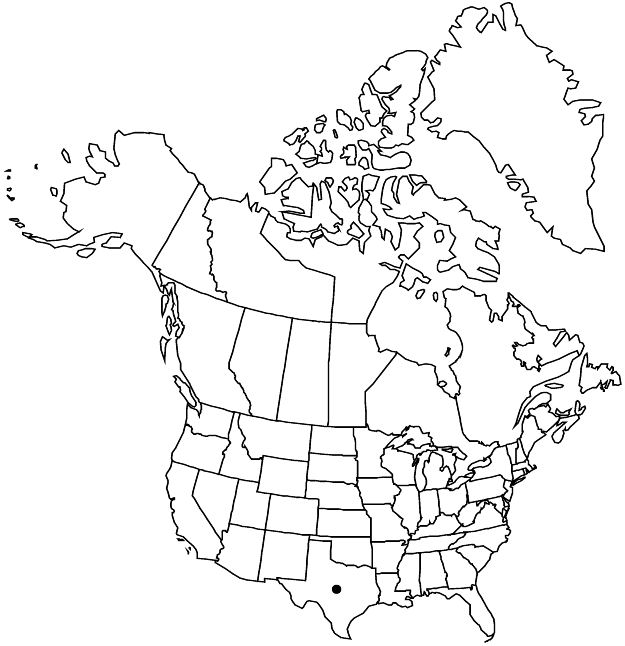Passiflora affinis
Boston J. Nat. Hist. 6.: 233. 1850.
Stems terete, glabrous, minutely puberulent to scabrous when young. Leaves not pungent, glabrous or minutely puberulent; stipules linear-setaceous, 1–2 × 0.5 mm, eglandular; petiole eglandular; blade roughly symmetric, 1–8(–10) × 1.5–10 (–14) cm, shallowly to deeply 3(–5)-lobed, middle lobe as long as or longer than lateral lobes, margins entire; abaxial fine veins weakly to moderately raised, abaxial nectaries circular, usually in 2 short lines or also scattered near leaf margins. Floral bracts linear-subulate, 1–3 × 0.5 mm, margins entire, eglandular. Flowers: floral tube absent; sepals pale green to white, 10–16 × 2–4 mm; petals pale green to white, 6–13 × 1–2 mm; corona filament whorls 2, outer filaments purple basally, white medially, green apically, linear-filiform, terete, apically clavate, 9–18 mm. Berries purple-black, globose to ovoid, 10–15 × 10 mm.
Phenology: Flowering (May–)Jun–Oct.
Habitat: Oak-juniper woodlands, shrublands, and savannas, in moist to dry, loamy soil over limestone
Elevation: 100–800 m
Distribution

Tex., Mexico (Coahuila, Nuevo León, Tamaulipas).
Discussion
Passiflora affinis is similar to P. lutea in leaf shape and flower appearance. However, P. affinis has nectaries on the abaxial surface of the leaves, which are absent in P. lutea. Passiflora affinis also has floral bracts, and flowers greater than 25 mm in diameter with clavate to capitate, sinuous outer corona filaments more than 10 mm long. Passiflora lutea lacks floral bracts and has flowers less than 25 mm in diameter with apically unornamented, typically straight outer corona filaments that are usually less than 10 mm long.
In the flora area Passiflora affinis is restricted to central Texas, where its leaves are often appropriately shaped like cowboy hats. E. P. Killip (1938) erroneously suggested that it is native to New Mexico, based upon the misinterpretation of herbarium label data (D. H. Goldman 2004).
Selected References
None.